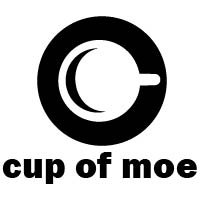We may earn money or products from the companies mentioned in this post.
“Captain America: Civil War” arrives as the third entry in Marvel Studios’ Captain America series, and the thirteenth film in the Marvel Cinematic Universe (MCU). “Civil War” deals with the aftermath of 2014’s “Captain America: The Winter Soldier,” and 2015’s “Avengers: Age of Ultron.” With a taut narrative, ensemble cast, and superb continuation of the MCU, “Captain America: Civil War” remains fresh.

This snafu prompts discourse on enhanced individuals, leading to the proposed Sokovia Accords. The Avengers are divided in their support: Tony Stark, aka Iron Man (Robert Downey Jr.) is driven by his guilt at unleashing Ultron, and thus advocates signing. Steve Rogers, or Captain America (Chris Evans), is too reminded of Hydra’s use of information as a means of control from Project Insight. Referring to the decimation of Sokovia during “Ultron,” the United Nations is slated to vote on the accords. However, at the UN conference in Vienna, a bombing kills Wakandan King T’Chaka (John Kani), and video footage incriminates Barnes. Rogers embarks on a mission to prove Bucky’s innocence, while T’Chaka’s son T’Challa assumes his alter ego of Black Panther (Chadwick Boseman), and sets out to avenge his father’s death.
“Civil War” addresses several lingering plot threads, and expands character backstories significantly. Essentially it’s “Captain America: The Winter Soldier” part two, probing the debate over tracking enhanced vs. ensuring personal liberties, and furthering the search for Bucky. There’s a neat exploration of Bucky’s past; specifics of his missions ultimately prove crucial in the riveting third act. Stark notably receives more personal depth, cracking the millionaire-philanthropist-playboy veneer. This insight illustrates his seemingly-out of character support of the Sokovia’s Accords, and similarly Cap’s resistance.
A slew of heroes appear in “Civil War,” picking sides between Iron Man and Captain America. Team Cap consists of Rogers, Barnes, Maximoff, Sam Wilson/Falcon (Anthony Mackie), Scott Lang/Ant-Man (Paul Rudd), and Clint Barton/Hawkeye (Jeremy Renner). On Iron Man’s squad are James “Rhodey” Rhodes/War Machine (Don Cheadle), Black Panther, Vision (Paul Bettany), Natasha Romanoff/Black Widow (Scarlett Johansson), and Peter Parker/Spider-Man (Tom Holland). It’s jarring to see such powerful heroes clashing with one another, especially the final showdown between Rogers and Stark. During the hero vs. hero matchups, there’s nevertheless a sense of mutual respect.
A much needed levity relieves a bit of the would-be tension thanks to Ant-Man and Spider-Man. Lang’s quipping ex-con personality and goofy talent of becoming tiny while gaining super-strength is a welcome addition. Parker’s childlike wonderment manifests as excitement while battling Bucky and Falcon. The airport scene, one of the MCU’s finest, is simultaneously filled with anxiety and hilarity. Even while fighting one another.
The proliferation of characters and concurrent narratives, while a strength, occasionally causes “Civil War” to falter. Spider-Man gets far too little screen time, as does Ant-Man. The second act lulls somewhat despite the several plots and subplots, mainly because of abrupt scene changes. Secretary of State Thaddeus Ross (William Hurt) returns from his singular appearance in “The Incredible Hulk,” but feels underused. Martin Freeman introduces Everett K. Ross to the MCU, though his character is criminally underutilized. Though released as “Captain America: Civil War,” it’s almost a third Avengers film.
In spite of the uneven character arcs and a few dull spots, “Captain America: Civil War” succeeds in due course. The loose ends from “Winter Soldier” are finally resolved, and the mounting enhanced issue comes to fruition as the Sokovia Accords. Plus there’s a fairly substantial twist which surfaces as a prominent plot element. A conclusion to the Captain America saga, and setup for what’s to come in the MCU, “Captain America: Civil War” is sure to please with its eye-candy action, fantastic array of heroes, and gripping story.
This post may contain affiliate links. We are a participant in affiliate programs such as the Amazon Services LLC Associates Program, an affiliate advertising program designed to provide a means for us to earn fees by linking to Amazon.com and affiliated sites. However, all products are thoroughly tested and reviews are honest and unbiased.
